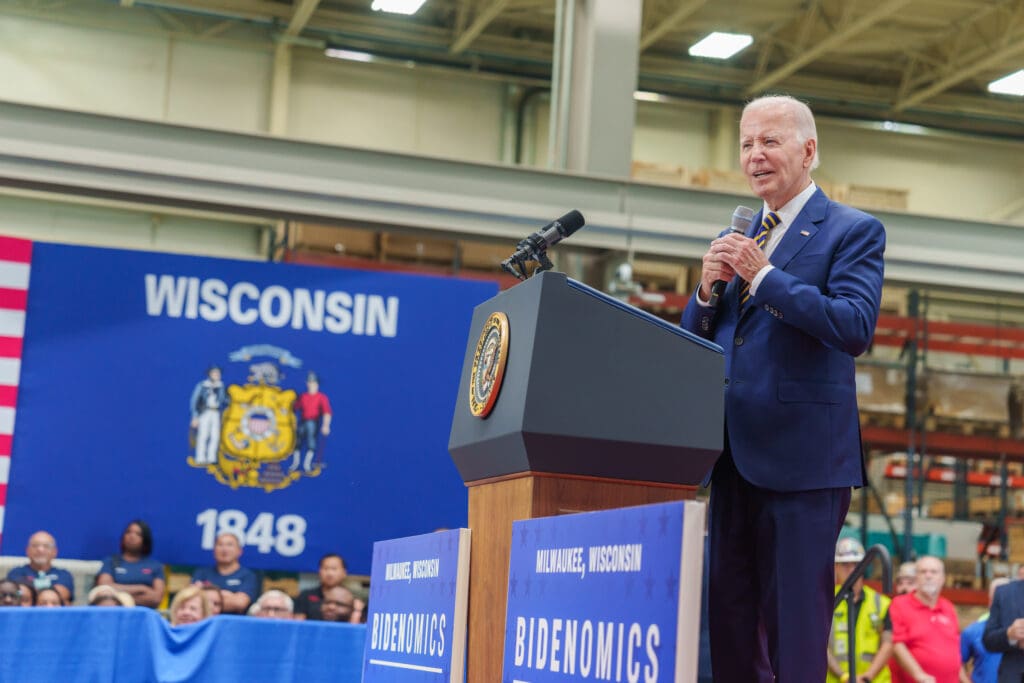Article Summary –
Four Wisconsin utility companies have pledged to use union labor for upcoming renewable energy projects. This commitment aligns with provisions in the Inflation Reduction Act, signed by President Joe Biden in 2022, which offers tax credits to companies investing in clean power and encourages fair wages and local apprenticeship programs. The Act is estimated to invest $4 billion in clean power storage and generation in Wisconsin by 2030, contributing to substantial carbon emission reductions and the creation or preservation of around 23,000 jobs in the state.
Wisconsin Utilities Join Forces with Union Labor for Renewable Energy Projects
Four Wisconsin utility companies, Xcel Energy, Madison Gas and Electric, Alliant Energy, and WEC Energy Group, committed to collaborating with union labor for their forthcoming renewable energy initiatives. This pledge, announced on March 26, is aligned with several trade unions including the Wisconsin Operating Engineers Local 139, North Central States Regional Council of Carpenters, International Brotherhood of Electrical Workers, and the Wisconsin Laborers’ District Council.
Following this announcement, Gov. Tony Evers posted on social media, emphasizing the role of skilled union labor in moving Wisconsin toward a sustainable, clean energy future.
The Inflation Reduction Act, signed by President Joe Biden in 2022, introduces tax incentives for green power projects. Despite opposition from Republicans, including Wisconsin’s congressional delegation, Wisconsin Democrats supported the Act, foreseeing immense potential for clean energy in the state.
The White House estimates an investment of $4 billion in clean power storage and generation in Wisconsin by 2030 through the Act. It also provides tax benefits to firms that adhere to local prevailing wages, and a bonus is allocated to those using US-made materials.
According to a 2023 report by Data for Progress, the Inflation Reduction Act could create or sustain 23,000 jobs in Wisconsin between 2023 and 2032.
Transitioning to clean energy is intended to decrease carbon dioxide emissions, a primary contributor to global climate change. A 2022 analysis by Princeton University’s ZERO Lab suggests the Act, along with the 2021 infrastructure law, could reduce US carbon emissions by about 1 billion metric tons.
—
Read More Wisconsin News










